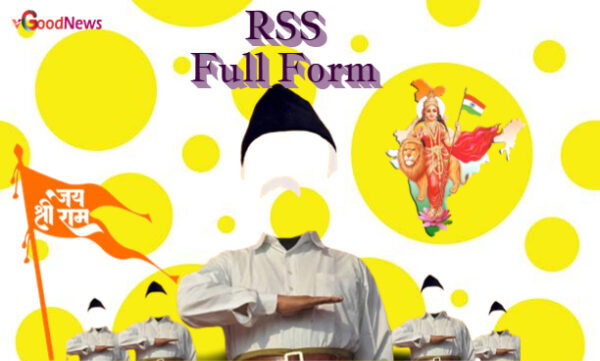Rashtriya Swayamsevak Sangh (RSS) – An Overview
RSS Full Form: The Rashtriya Swayamsevak Sangh (RSS), which translates to “National Volunteer Organization,” is a prominent nationalist organization in India. Established in 1925 by Keshav Baliram Hedgewar, the RSS was initially created to protect Hindus from Muslim rule and British colonialism. It aimed to unite Hindus across various castes, regions, and religions into a cohesive state. Since 1990, the RSS headquarters have been located at Akshardham in Delhi. It is the largest volunteer organization globally, boasting over 40 million members.
RSS Full Form: What is the RSS?
The RSS is a significant part of Indian society, providing a structure where members, known as Swayamsevaks (volunteers), are selected and trained. The organization is divided into groups called shakhas (units). The RSS works with more than 200,000 affiliates in India and abroad, holding a membership of nearly 1.25 million. It is one of India’s largest charity organizations, with a budget of around 16 billion rupees ($237.2 million).
What Does the RSS Stand For?
The RSS aims to create a society governed by “Vedic Dharma,” emphasizing unity among Hindu traditions, pride, and patriotism. The organization supports Hindutva, an ideology it believes is essential for India to become a strong and powerful nation. The RSS’s mission includes promoting Hindu values and ideals, using the collective strength of Indian groups to spread Hinduism, and advocating against injustices faced by Hindus. RSS Full Form
RSS Full Form: History of the RSS
Founded in 1925 in Nagpur, the RSS sought to revive Hindu values and ideals. It aimed to harness the power of the Indian masses to promote Hinduism and counter the injustices imposed by invaders of India. Over the years, the RSS has played a crucial role in various social and political activities in India. During the Indian freedom struggle, the RSS supported the Indian National Congress and later contributed to the formation of the Jan Sangh in 1951 and the Bharatiya Jana Sangh in 1953. RSS Full Form
RSS Full Form: Philosophy of the RSS
The RSS believes in the unity of all Hindu traditions and the creation of a unified Hindu Rashtra (nation). According to RSS philosophy, despite the diversity in Indian society, the underlying unity should be emphasized and restored among different sects and religions. The RSS headquarters in Nagpur serves as a center of learning and knowledge dissemination.
RSS Full Form: Importance of the RSS
The RSS plays a vital role in promoting Hindu nationalism, as articulated by Pandit Deen Dayal Upadhyay, an economist, social reformer, and prolific writer. The organization has been instrumental in social and political activities throughout India’s history. It has consistently worked towards the betterment of all castes, communities, and states in India.
Conclusion
The Rashtriya Swayamsevak Sangh (RSS Full Form) stands as a significant and influential organization in India, advocating for Hindu values and unity. Established in 1925, the RSS has grown to become the largest volunteer organization globally, with a profound impact on Indian society and politics. The organization’s commitment to promoting Hindutva and its active involvement in social and political spheres underscore its enduring relevance in India today.
FAQs about RSS Full Form
What is the full form of RSS?
The full form of RSS is Rashtriya Swayamsevak Sangh, which translates to “National Volunteer Organization.”
When and why was the RSS founded?
The RSS was founded in 1925 by Keshav Baliram Hedgewar. It was established to protect Hindus from Muslim rule and British colonialism and to unite the Hindu population across various castes, regions, and religions.
What are the primary objectives of the RSS?
The primary objectives of the RSS are to promote Hindu pride and patriotism, to create a society governed by “Vedic Dharma,” and to unify all Hindu traditions into a single Hindu Rashtra (nation).
How is the RSS organized and what is a shakha?
The RSS is organized into groups called shakhas (units). Each member, known as a swayamsevak (volunteer), is part of a shakha. The organization operates through more than 200,000 affiliates in India and abroad. RSS Full Form
What role has the RSS played in Indian society and politics?
The RSS has played a significant role in various social and political activities in India. During the freedom struggle, it supported the Indian National Congress and later contributed to the formation of the Jan Sangh in 1951 and the Bharatiya Jana Sangh in 1953. It continues to influence Indian society and politics, promoting Hindu values and nationalism.

